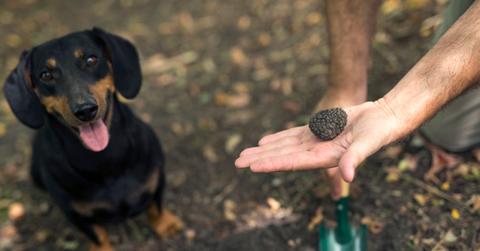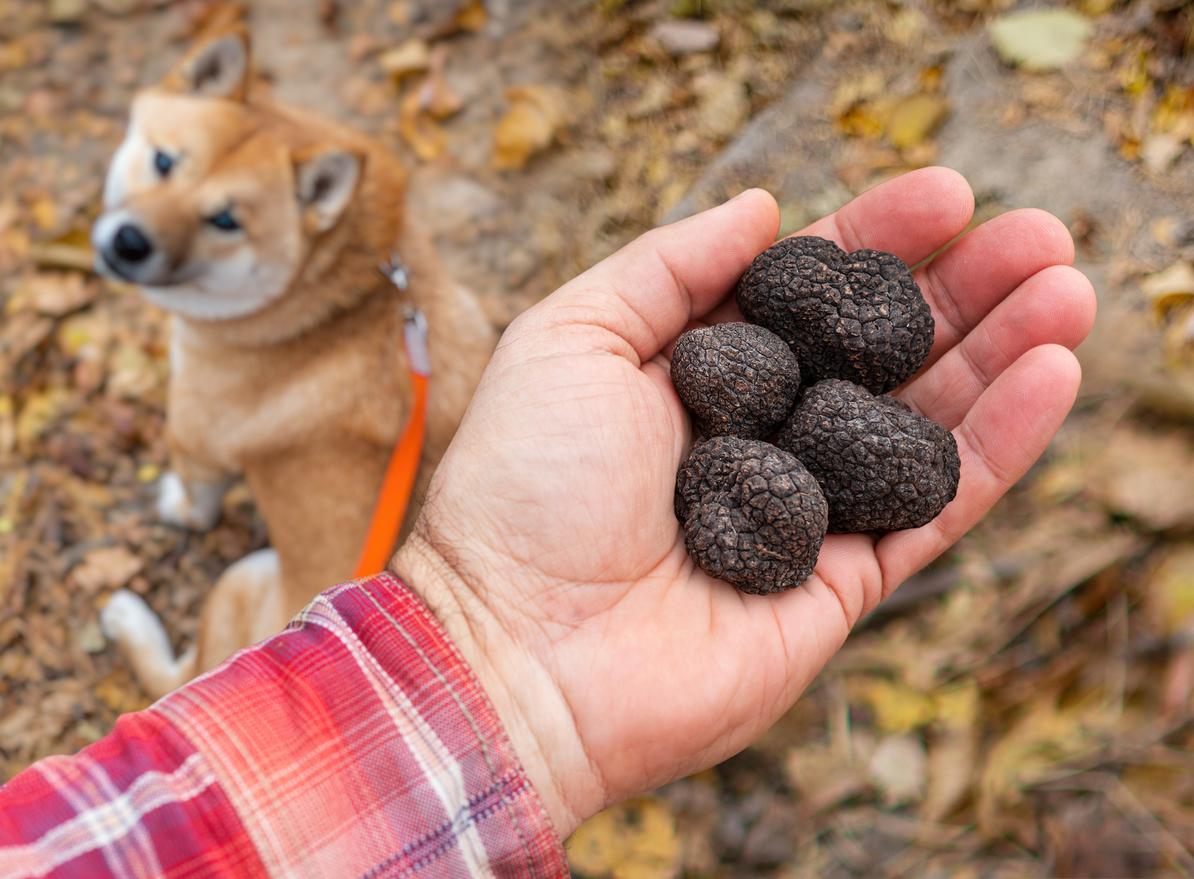Truffles Are a Member of the Mushroom Family, so Why Are They so Expensive?
Whereas mushrooms grow above ground, family member truffles grow underground. They require highly specialized conditions to grow.
Published March 6 2024, 3:24 p.m. ET

Truffles are a trendy pairing in higher-end vegan cuisines (especially in gourmet vegan mac and cheese dishes). Uncovering truffles requires tremendous foraging skills, and they belong to the fungi family.
But if they're accessible in nature, just like mushrooms, why are they so expensive?
Find out more as we hunt for insight into why truffles are so expensive, what they taste like (if you're lucky enough to get your hands on a dish that includes them) and why they're a great addition to your next fancy vegan party.

Why are truffles so expensive?
Truffles are a more costly luxury than mushrooms because they require considerably more work to harvest. According to Martha Stewart's website, while mushrooms grow above ground, truffles grow below. Humans understandably cannot detect the smell of truffles below ground, thus requiring trained dogs to sniff them out.
Described as "extremely high-maintenance" by MarthaStewart.com, the fungi family member grows near the roots of certain trees, requires highly specific climate conditions throughout each season to mature, and may take between six and seven years until they're ready to be unearthed.
According to Business Insider, the largest white truffle on earth, which was found in Italy and weighed nearly 4.5 lbs., was accompanied by a security guard to an auction, where it sold for $61,000. Though still difficult to defend on a fixed budget, Business Insider reports that a nearly three-ounce truffle can be had for the comparably more affordable price of about $100 or more.
Per TastingTable, truffles may potentially cost upwards of $300,000.

What do truffles taste like?
The answer to what truffles taste like depends on the truffle's quality and how it's prepared and incorporated into a particular dish. According to Business Insider, cheap truffle products may contain a synthetic chemical compound to mimic the earthy taste of truffles naturally found in the forest.
Before you run to the store and purchase the first product with truffles in the ingredients, Business Insider also notes that the synthetic compound found in cheaper truffle products also contains a chemical present in foot odor.
Foot aroma aside, the taste of truffles can best be described with an umami profile, according to Reader's Digest.
Similar to how tofu is a versatile, animal-free addition to any dish with a flavor that can be transformed through different preparation methods and pairings, so too can the flavor of truffles be masterfully manipulated. Per Reader's Digest, black truffles are the ones with an earthier, nuttier taste while white truffles feature a less intense musk and a hint of sweetness.
It may take a refined, mature palate to fully appreciate the taste, too. YouTube channel Kids REACT solicited feedback from children trying truffles, and the feedback was humorous.
From "smells like poop, looks like poop" and likening the smell to gasoline and vinegar to comparing the taste to salty and garlicky (which I can attest to), it's safe to say that truffles elicit a strong reaction either way, and its expensive price tag may not bother its supporters all that much.
As for me, I'll stick with nutritional powerhouse mushrooms as my fungi of choice, thank you very much.